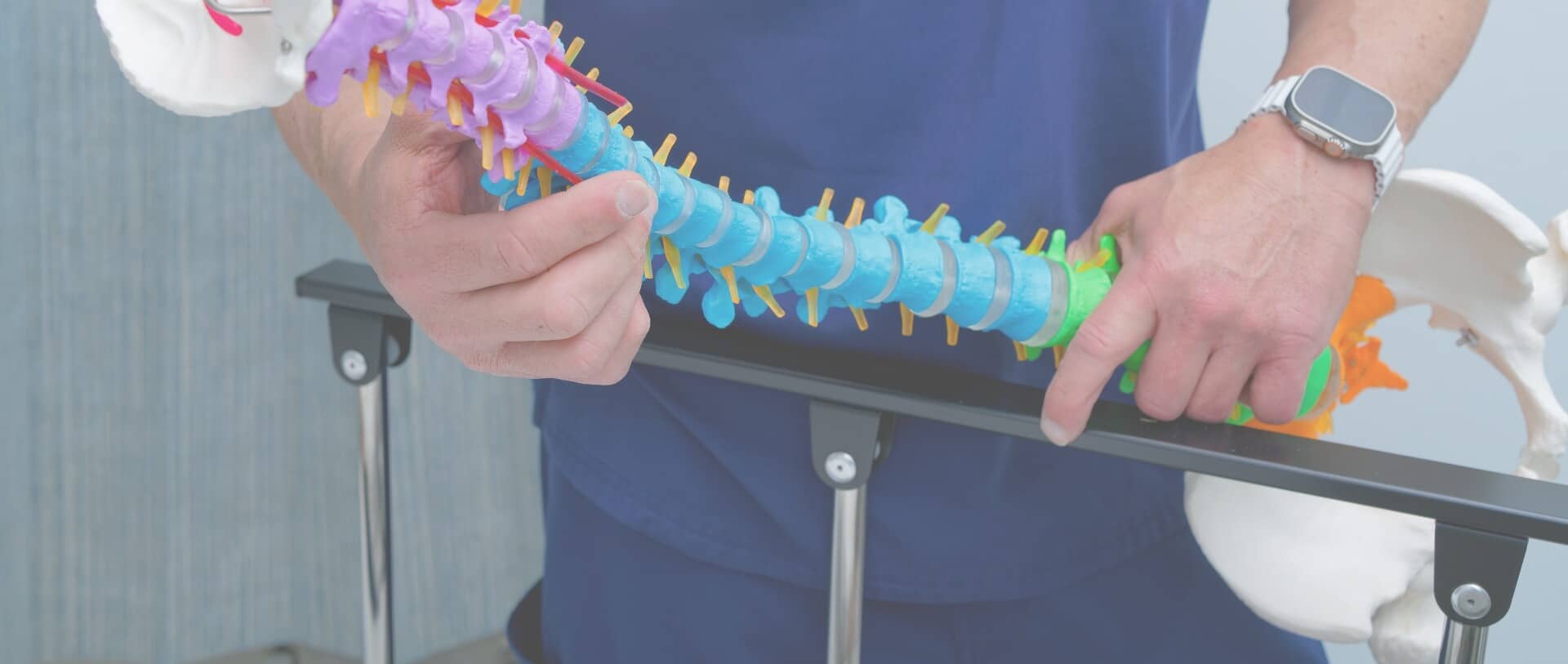
CONDITIONS
Degenerative Disc Disease
If you experience back pain while sitting, it could be a sign of degenerative disc disease in your lower back. The shock-absorbing spinal discs between your vertebrae can shrink or burst, putting pressure on your spine and compressing the nearby nerves. This can cause debilitating pain and other symptoms. If you’re suffering from severe back pain, see the team at Gottlieb Spine, specialists in spine care and treatment for degenerative disc disease. Call today for an appointment.
What is Degenerative Disc Disease?
Degenerative disc disease is a painful condition that occurs as you age and can affect the intervertebral discs in your spine. These discs act as shock absorbers, but with time, they can deteriorate, causing a decrease in cushioning. As a result, movement can become uncomfortable and lead to back pain.
Back pain can significantly impact your quality of life, hindering your ability to walk, stand, and perform daily tasks. It is a leading cause of disability. If you are experiencing persistent back pain, it is essential to consult with an experienced spine doctor to make a precise diagnosis. Diagnosing degenerative disc disease early on can improve the prospects of a complete recovery.
What are the Symptoms of Degenerative Disc Disease?
Degenerative disc disease presents various symptoms that can impact your daily life. Signs of this condition usually arise between the ages of 30 and 40. For early degenerative disc disease treatment, familiarize yourself with the common signs of the condition, including:
- Pain when sitting, bending, lifting, or twisting
- Sudden onset and intermittent pain
- Radiating pain to the legs, buttocks, arms, or hands
- Numbness
- Radiating pain
- Weakness
- Muscle spasms
If you experience any of these symptoms, it’s important not to overlook them. Schedule an appointment at Gottlieb Spine, a trusted Texas spine center, for a comprehensive evaluation. With an early diagnosis, you can start degenerative disc disease treatments right away, preventing additional disc deterioration and finding relief.
What Causes Disc Degeneration?
Degenerative disc disease develops gradually, typically only causing discomfort in its later stages. The spine is susceptible to wear and tear, and the speed at which the cushioning discs deteriorate depends on how much strain you put on your back. Some causes of degenerative disc disease include:
- Poor lifting techniques
- Certain contact sports
- Repetitive motions at work
- Spinal injuries
- Disc dehydration
What is the Best Treatment for Degenerative Disc Disease?
At first, your doctor may recommend a series of initial degenerative disc treatments to alleviate the inflammation and discomfort associated with your condition. This might include a combination of remedies and interventions, including:
- Non-steroidal anti-inflammatory drugs (NSAIDs)
- Muscle relaxants
- Steroid injections
- Massage therapy
- Physical therapy
If these treatments do not provide adequate pain relief or if your back pain persists, it may be beneficial to schedule a visit with Dr. Skovrlj to explore new treatments for degenerative disc disease.
Will I Need Surgery for Degenerative Disc Disease?
Degenerative disc disease surgery may be the best treatment for degenerative disc disease. Spine surgery can effectively alleviate pain that remains unresponsive to non-surgical interventions. This treatment for degenerative disc disease is also recommended in cases where neurological symptoms are present.
Several surgical approaches have shown to be effective, and can be explored as degenerative disc disease treatments:
- Laminectomy: Also known as decompression surgery, a laminectomy involves the removal of the posterior part of the vertebra, which safeguards the spinal canal. This procedure creates more space for the nerves, preventing any pinching sensation.
- Discectomy: A straightforward procedure that entails the removal of portions of a problematic disc that may be pressing against the spinal cord or a nerve root.
- Spinal fusion: During this procedure, your surgeon fuses two or more vertebrae using bone or bone-like material as a graft, resulting in the formation of a single, larger vertebra. This fusion reduces the pain and discomfort caused by the friction of adjacent bones rubbing against each other.
- Disc replacement: An artificial disc replaces the disc(s) that were damaged, preserving natural motion at the affected area of the spine and alleviating any pain or discomfort.
Our team of experienced doctors, led by Dr. Jamie Gottlieb, creates personalized treatment plans with the new surgery for degenerative disc disease. Our minimally invasive approach to degenerative disc disease surgery facilitates a faster recovery with improved success rates.

Top Quality Care at Gottlieb Spine
At Gottlieb Spine, we are your partners in fighting degenerative disc disease, offering specialized care and a range of treatments tailored to your unique needs. Whether you are seeking recommendations for non-surgical interventions, or a new surgery for degenerative disc disease, we are here to guide you toward optimal health. Contact us today to schedule a consultation.
SCHEDULE A CONSULTATION